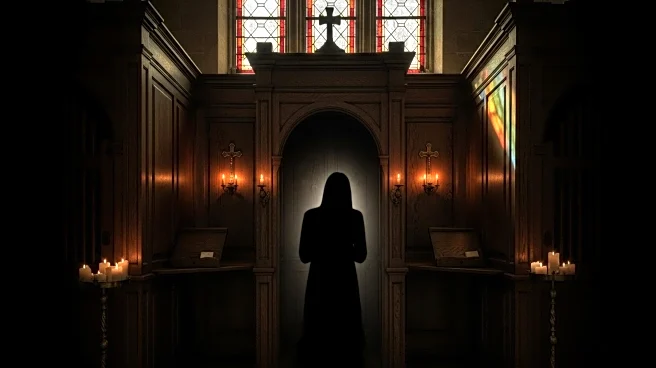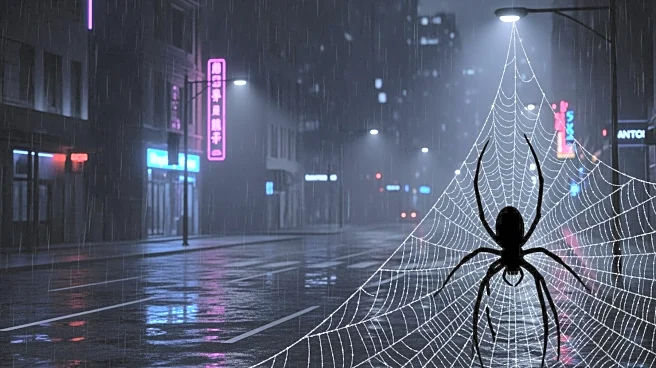What's Happening?
Legendary filmmaker Martin Scorsese has disclosed that he once considered becoming a priest, a revelation made in the new docuseries 'Mr. Scorsese,' which premiered at the New York Film Festival. The series, directed by Rebecca Miller, explores Scorsese's early life and the significant impact religion had on him. Scorsese attended his first Catholic mass at the age of seven, which led him to pursue religious education. However, he was eventually 'kicked out' due to bad behavior. The series highlights how Scorsese's interests shifted from the church to the broader world, influenced by the cultural changes of the time, including early rock and roll. Despite his initial religious aspirations, Scorsese pursued a career in film, earning degrees from New York University and making his directorial debut in 1967.
Why It's Important?
Scorsese's revelation provides insight into the personal history of one of America's most influential filmmakers. His initial interest in priesthood and subsequent shift to filmmaking underscore the complex interplay between personal experiences and creative expression. This background enriches the understanding of Scorsese's work, which often explores themes of morality, redemption, and human complexity. The docuseries not only sheds light on Scorsese's formative years but also highlights the broader cultural shifts of the mid-20th century that influenced his artistic vision. For audiences and film scholars, this adds depth to the appreciation of his extensive body of work, which includes iconic films like 'Taxi Driver' and 'Goodfellas.'
What's Next?
The docuseries 'Mr. Scorsese' is set to be released on October 17, offering audiences a comprehensive look at Scorsese's life and career. The series includes interviews with Scorsese's family, contemporaries, and creative collaborators, providing a multifaceted view of his journey. As the series becomes available, it is likely to spark discussions among film enthusiasts and critics about the influences that shaped Scorsese's storytelling. Additionally, it may inspire further exploration of the connections between personal history and artistic output in the broader context of film studies.









